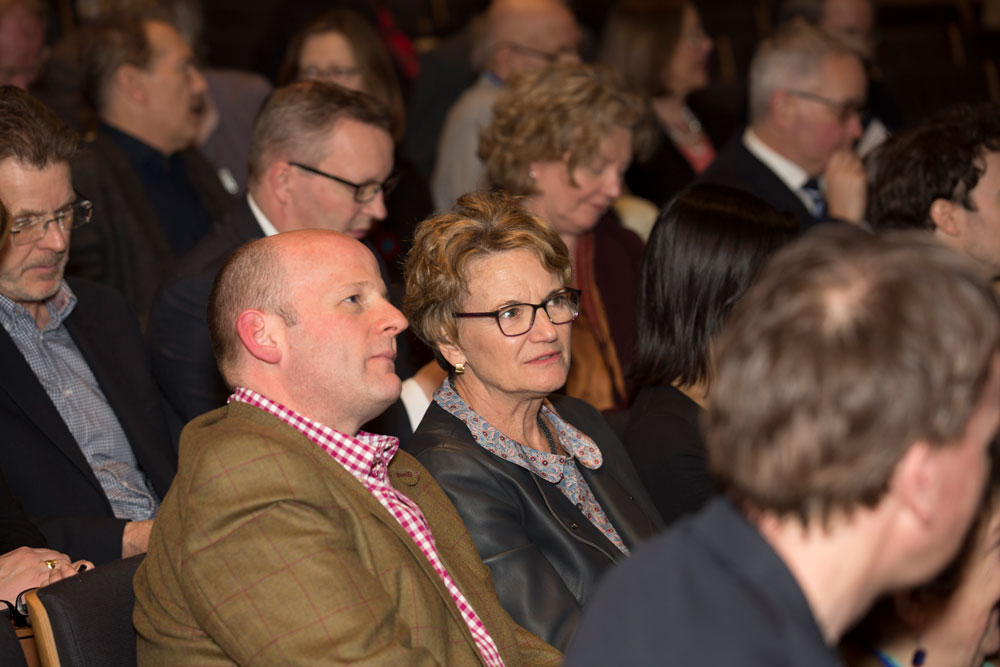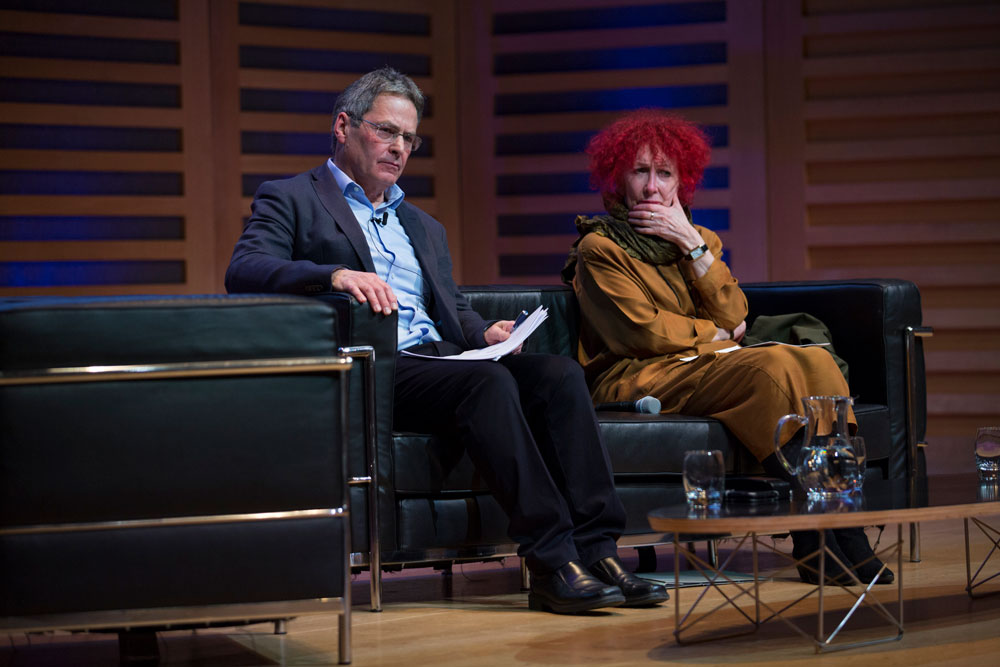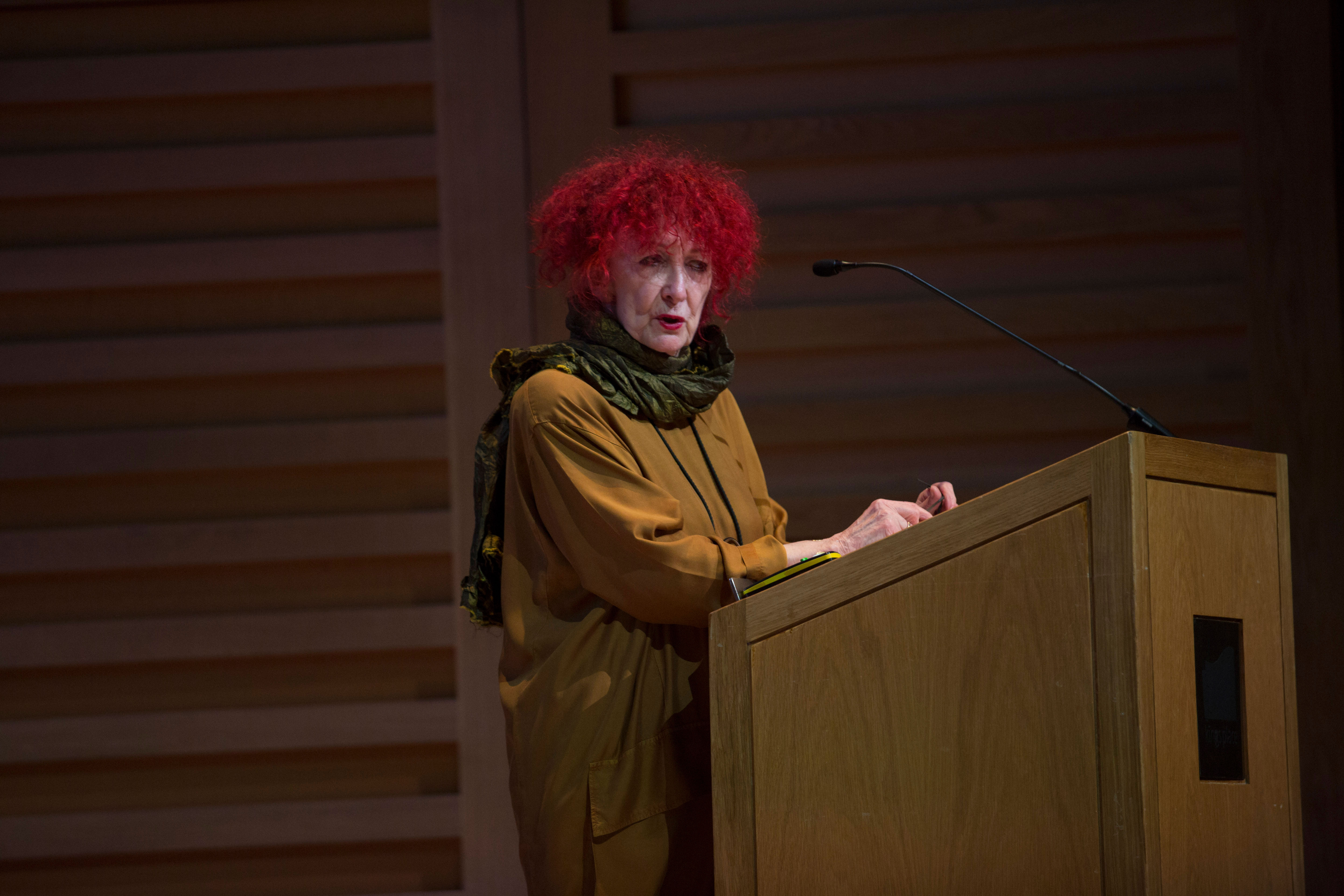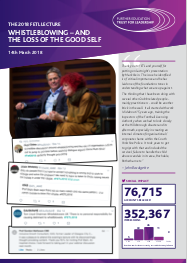
Thanks for the bad news – now let’s think about how to improve
FETL´s 2018 lecture focused on whistleblowing and the obligations of ethical leadership. Professor Mark Stein challenged leaders to think differently and positively about whistleblowers, seeing them not as a threatening ‘other’ but rather as part of the ‘good self’ of organisations and their staff. Dame Ruth Silver reflects on the event.
Leadership and learning are inextricably linked. It is part of the skill set of effective leaders to lead the learning of staff and to set an example to staff by being prepared to learn and adapt themselves. Strong leadership should not be conflated with inflexibility and intransigence. A key dimension of effective, forward-looking leadership is a willingness to be confused and confounded, to reflect critically on what you have done before and, if necessary, to rethink and unlearn attitudes and approaches that do not work.

This kind of challenge is what I hope the Further Education Trust for Leadership’s lectures will provide. While a willingness to learn and be critical is a key component of all leadership, it is especially important to leadership in education, and not least in a sector which exists at the shifting interface between communities, government and industry.
The 2018 lecture provided such a challenge and much more besides. It was given by Mark Stein, Professor of Leadership and Management at the University of Leicester, and one of the most interesting and original thinkers on leadership issues around.
Mark’s theme was ‘Whistleblowing and the loss of the good self’. Whistleblowing is, of course, a hugely topical issue, which speaks directly to the need for leaders to learn and to lead learning organisations. Mark’s focus was on the stigmatisation of whistleblowers and the relationship between whistleblowers and their organisations. He argued that whistleblowers are vilified not merely because they are perceived as the despised ‘other’ at odds with colleagues and the organisation but also because they represent a ‘lost, good part of the self of staff members’.

What this means is that while, on one level, whistleblowers appear to be despised because they set up ‘in opposition’ to their organisation, at a deeper level something quite different is happening. By having the courage to say something that other staff did not, whistleblowers confront colleagues with the uncomfortable truth that they have failed to call out unethical or illegal conduct and have, in a sense, colluded in it, thus failing to live up to the ethical imperative of their work. The way in which they deal with this is by ‘turning to hatred’. As Mark noted, ‘the instinctive cultural reaction is to shoot the messenger’, which helps explain the really appalling treatment meted out to whistleblowers by staff (everything from shunning and character assassination to attacks on property and threats to life).
It is, of course, part of the role of leaders to find ways to prevent this, both by setting up systems and establishing a culture that prevent things going bad, and by creating conditions in which staff feel able to speak up and call out bad and illegal behaviour. This was a key theme of the discussion that followed Mark’s lecture. Anthony Painter, from the RSA, for example, asked how leaders can encourage ‘authentic leadership’ at different levels of an organisation to ensure whistleblowing does not become necessary, while James Kirkup, from the Social Market Foundation, wondered what role leadership had in creating a culture within which whistleblowing is easier. Another speaker questioned the perverse system of incentives which leads organisations to put targets above core values.

There is an important cultural issue here. While process is important it should not always be our first recourse. Leaders should seek dialogue first and not simply resort to process. That is one of their responsibilities. Organisations also need strong, objective internal voices which can highlight when things aren’t functioning as they should. As leaders, we should not be frightened by bad news but see it as an opportunity: thank you for the bad news, now let’s see how we can improve matters. Genuinely open, human leadership not only vouchsafes organisational values but can prevent division and fragmentation when things do go wrong.
The audience heard from whistleblowers who spoke not only about terrible consequences for them personally, but also the failure of processes put in place to support whistleblowing. Bernie Rochford, a clinical commissioner who highlighted a lack of basic controls at Southwark Primary Care Trust, talked of being ‘threatened, bullied and intimidated’. Her concerns were subsequently considered at multiple layers of NHS management without being resolved. She described this as ‘wilful blindness’. ‘Before people can speak up they first have to see what is going on,’ she said.
This chimed with the experience of other whistleblowers. As Mark pointed out in his lecture, Helene Donnelly, a nurse who blew the whistle on appalling practice in the Mid Staffordshire NHS Trust, made more than 100 attempts to raise concerns about the standard of care at her hospital (leading to threats to her life). Psychologist and Working Well consultant Gabriele Braun suggested that in such cases even the local community can turn against the whistleblower, faced with a truth ‘so appalling’ it is unbearable to contemplate.

I was delighted to hear contributions from people from such a diverse range of backgrounds. For me, creating this kind of space, in which individuals who do not meet in the ordinary course of their work can come together, share experience and expertise, and, crucially, learn, is what FETL is all about. In that same spirit we will shortly share a film of Mark’s lecture online and publish a transcript. Mark will also soon take part in a webinar on the issues raised. Watch this space!
As always, our aim is to ensure ideas have a life off the page and outside the lecture theatre. We very much hope you will join in and continue this fascinating discussion.
Dame Ruth Silver is President of FETL





















































































